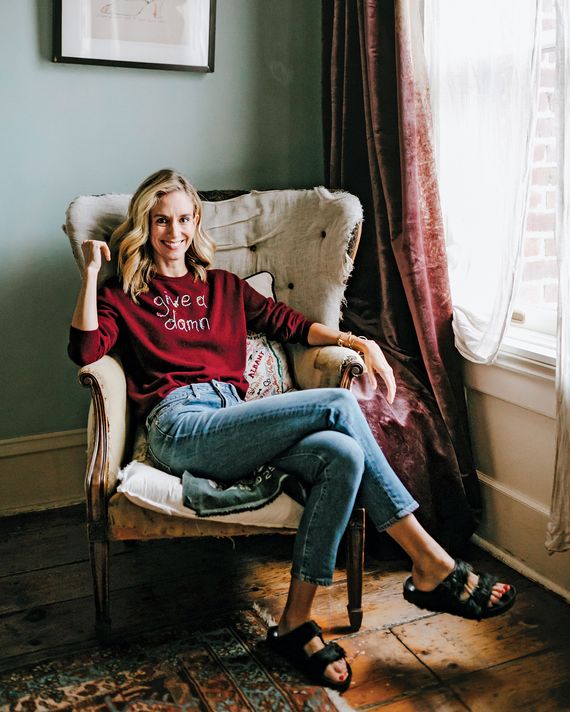
One office of the fashion brand Lingua Franca is in a warren of spaces below the Jane Hotel, where Diane Jaffe, an embroiderer, is working on a white sweater with WE THE PEOPLE stitched in red and blue thread that will sell for $380.
Lingua Franca’s founder, Rachelle Hruska MacPherson, is sitting in a room to the side that’s separated by French doors, picking at a hamburger and talking about how she started craving meat during her pregnancy. She has tousled blonde hair and is wearing wide-legged jeans, a Comme des Garçons Play T-shirt, and a charm necklace. She exudes jittery warmth.
“I had crazy postpartum anxiety — I’m now proudly medicated — and my therapist said to try doing something with my hands,” she says of the brand’s origin story. “And I thought, Well, Grandma Rita taught me to embroider.” At the time, Hruska MacPherson was running the party website Guest of a Guest, which she’d founded in 2007. That weekend, in February 2016, she was in Montauk and followed her therapist’s advice by embroidering BOOYAH on an old cashmere sweater. She posted a photo on Instagram.
A flood of requests came from friends and family and strangers for their own sweaters with hip-hop lyrics and references embroidered on them. And soon she started selling vintage sweaters she’d bought off eBay emblazoned with I MISS BIGGIE, among other sayings, out of the Crow’s Nest in Montauk. Leonardo DiCaprio bought one for whomever he was dating at the time that read ORIGINAL GANGSTA. Hruska MacPherson and her husband, the hotelier Sean MacPherson (who owns the Crow’s Nest and co-owns the Jane Hotel, the Bowery Hotel, and the Waverly Inn, among other properties), liked to say hip-hop is the lingua franca of our time, and so the line had a name. But what it didn’t yet have was a conscience.
“All anyone ever does these days is launch their own company. Do they just buy each other’s stuff?,” wonders a friend who has watched these companies and their social web play out on Instagram. And it’s true that Hruska MacPherson’s line is at the center of a tangled cosmology of small, female-led fashion companies started by women with connections in the fashion world and in society. Lingua Franca has collaborated with La Ligne, the everything-striped line founded by Vogue alumnae Valerie Macaulay and Meredith Melling and the former head of business development at Rag & Bone Molly Howard. Upper East Side boutique Fivestory, founded by Claire Distenfeld Olshan, was one of the first to carry Lingua Franca, and now Hruska MacPherson attends events for DADA Daily, Distenfeld’s line of healthy snack foods (Cheesy Cauliflower Popcorn Florets, $4.75, 43 calories). Leandra Medine of Man Repeller went to a Waverly Inn Mother’s Day party that Lingua Franca threw. Medine worked as an informal adviser to La Ligne, and Distenfeld calls Medine “my best friend in the entire world.”
It’s not enough just to launch a company, though: These days, a small business has to be about something bigger. These boutique brands place themselves in the lineage of a higher purpose: activism, wellness, sustainability, size inclusivity. Clothes might be in service of the #resistance or about changing body norms (as with the creative consultant and former journalist Jessica Joffe and fashion veteran Alison Bergen’s line, Même Chose) or democratizing access to silk. Founders of a certain type can’t say it’s only about fashion anymore. In other words, radical chic has met the girlboss.
The well-heeled and -connected designer certainly has her foremothers: Lilly Pulitzer, Carolyne Roehm, Carolina Herrera, Gloria Vanderbilt. And the Upper East Side has long been lined with boutiques for the wives and daughters of financiers (Fiona Druckenmiller’s FD, Lisa Perry). Maybe in a different era, when everyone wasn’t so in love with being a founder — one of the #ladieswholaunch — these women might be society matrons, going to luncheons and sitting on boards and getting their hair done and making a big donation at the annual Robin Hood foundation benefit. But now, having a business is a way for a woman of a certain class to avoid being simply ornamental and, in these times, to show that she has a conscience. Consider it the latest evolution of the socialite side gig. “In the ’80s, if you were an affluent woman, it was interior design; you would go into PR in the ’90s; in the early aughts, you were a DJ; and the main business in the teens is influencing one way or another,” says Erik Maza, the style features director at Town & Country.
Now, too, there is e-commerce and the visibility of social media, which means it’s not just the people in the founders’ immediate universe who know about these companies. “I think these new socialite types want to sell their status and connections to a more aspirational audience that is ripe to be cultivated because they can shop with the click of a button,” says Maza. That bigger platform can also make such types more open to criticism. But in an era when everyone is checking their privilege, if a wealthy founder has set up the business as a cause, it can bulletproof her against some of that potential blowback.
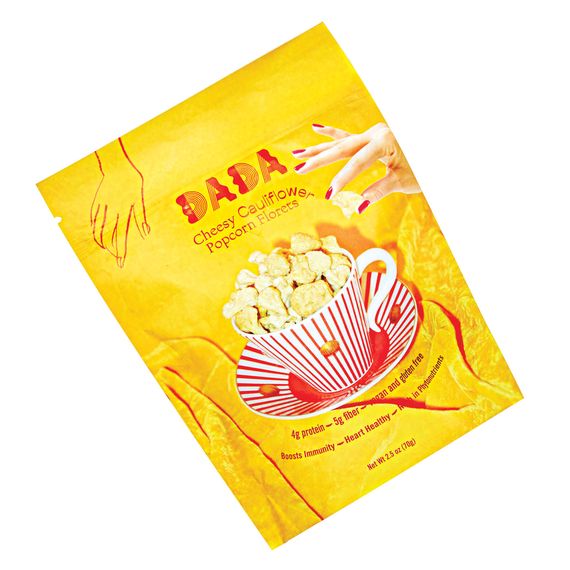
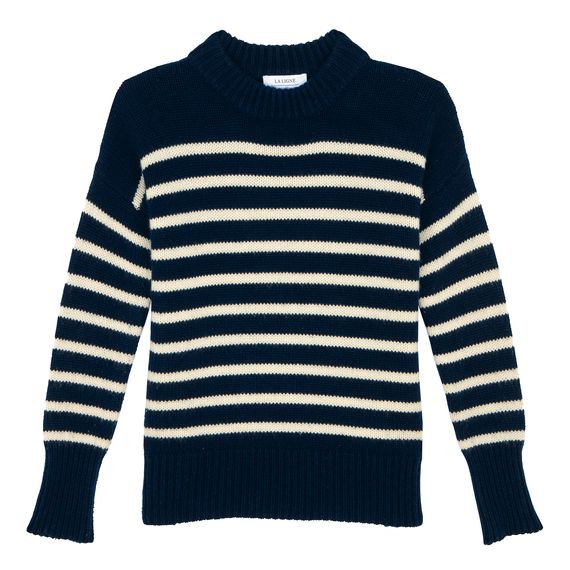
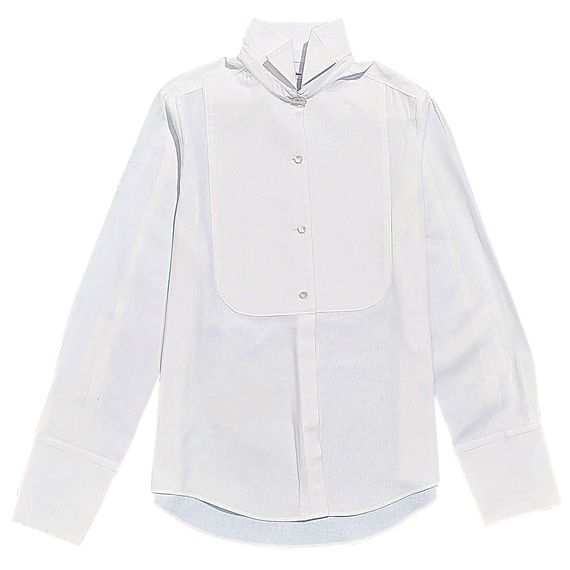
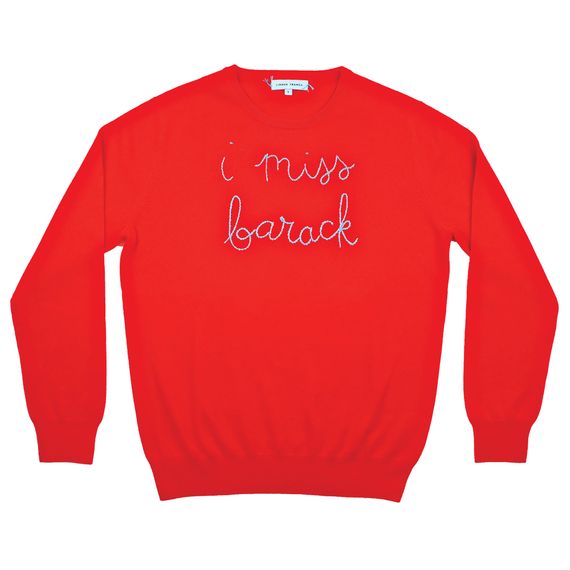
Hruska MacPherson will be the first to tell you she lives an almost comically rarefied life. She met her husband at a party at the Spotted Pig (“At the rape room before we knew it was the rape room”). They live with their two kids in a former butcher shop in the Meatpacking District, and have BEAT THE SYSTEM etched inside their wedding bands.
Things took a political turn for Lingua Franca after Trump initiated the January 2017 travel ban. At the time, the brand had three F.I.T. students from Iran who were sewing for the company. When Hruska MacPherson came into the office, they were crying, wondering if they could ever go home or see their families again. “It was the first time in my white privileged life I had politics affect me. It’s insane and ridiculous, but it’s the truth,” Hruska MacPherson says. So she told the F.I.T. students to channel their feelings into embroidery and made a sweater that read I MISS BARACK. Hruska MacPherson owed Anna Carter, wife of Graydon, a gift for writing her family a preschool recommendation, and gave the sweater to her. (“Anna’s really sophisticated, and it was camel-y color,” she notes.) Thousands of email orders followed, and just like that, Lingua Franca became the official cashmere of the resistance.
Now, along with CALIFORNIA LOVE and EVERYDAY I’M HUSTLIN’, you can get Lingua Franca sweaters embroidered with I DIDN’T VOTE FOR HIM, NASTY WOMAN, or THE REVOLUTION WILL NOT BE TWEETED. Connie Britton wore one of its POVERTY IS SEXIST, $380 retail but gifted to her from Bono’s ONE foundation, to the Golden Globes the year after Me Too, when everyone was wearing black. “I just don’t think a $5,000 gown would have added to the conversation in the same way,” Britton tweeted. Reese Witherspoon bought a bunch that read TIME’S UP up for friends, including Meryl Streep, who wore it on Ellen.
Lingua Franca’s website calls the line “a subversive underground movement to counteract the forces of mass production, mindless consumerism, and the patriarchy. Just kidding (kind of).” So yes, while the line is sold at Net-a-Porter and Saks Fifth Avenue (“The big wholesale accounts don’t order anything political,” Hruska MacPherson notes), there is also a $380 DREAM ON DREAMERS sweater, with $100 of that price going to the UndocuNeighbor Defense Fund. A collaboration with Margaret Atwood for 100 signed copies of The Testaments with embroidered covers to raise funds for Equality Now sold out in six minutes.
Lingua Franca made a zine for its most recent collection. On the cover, shot by Pamela Hanson, the well-heeled activist and model Sarah Sophie Flicker wears a beret embroidered with her initials and a sweater that reads POWER TO THE PEOPLE; she has her hand raised not in a fist but a peace sign. Inside is an array of women who are both political and social, including the Women’s March co-chair Bob Bland, Ann Dexter-Jones (“jewelry designer, artist, freelance writer, Reiki master”), and Hruska MacPherson with her sons, Dash and Maxwell, who are wearing matching sweaters embroidered with BAD HOMBRE.
Hruska MacPherson is on the She Should Run board, but joined with the caveat that she couldn’t come to all the board meetings. “I have two kids, two businesses, and a new dog,” she says. “A lot of things fall through the cracks; the important things don’t.”
By way of explaining how busy she is, Hruska MacPherson points out that she used to change the collage behind her desk monthly, and now there’s no time to do it. It includes Joan Didion’s Celine ad; a picture of Earth with THERE IS NO PLANET B written above it; Beyoncé; Biggie Smalls; and a card that reads ROSES ARE RED / VIOLETS ARE BLUE / I WANT TO DESTROY / WHITE SUPREMACY WITH YOU.
It’s easy to look at the Lingua Franca universe — the many collaborations, the slogan-based activism on cashmere of all things, even the store on Bleecker Street, which opened on Election Night 2018 and is decorated with portraits of Ruth Bader Ginsburg, Michelle Obama, and Maya Angelou — and find it all a bit like Marie Antoinette playing shepherdess at the Petit Trianon.
Hruska MacPherson doesn’t see it that way. “We’re trying to build a brand that’s not just about politics; it’s consumers who care, who give a damn,” she says. “Sean calls us Vice for moms, which I don’t think is true.” Lingua Franca’s embroiderers, for example, make between $20 and $27 an hour and can work mostly from home with flexible hours. “I realized I never worked with women over 50, and there is all this wisdom you get being around women in their 60s and 70s. Women who are caring for their mother or worked at the Macy’s floor and were going to get evicted when they got laid off,” she says.
Hruska MacPherson’s learning curve is not over. She discontinued certain sweaters (DO THE RIGHT THING) after enough people were offended. She recently put up a post on Instagram of one of her embroiderers carrying a giant stack of sweaters. “People were like, ‘Oh my God, we can’t believe you’re using plastic bags,’ but they’re shipped to us like this. It’s like, Okay, sigh, yes, this is a problem, but I can’t solve every problem,” Hruska MacPherson says, while noting that the company is working with its cashmere supplier to change its packaging. “Going too far the other way — being too careful — isn’t our goal.”
“I didn’t have this intention to start this giant fashion company. We are trying our best. That is the truth. We are profitable, we’ve raised a ton of money for organizations, we have to check our privilege every day,” she says. Hruska MacPherson recounts an interview in which a journalist asked her about being a rich white woman embroidering hip-hop lyrics onto cashmere. Her response was, “What would you like me to do? Not celebrate these lyrics, not give money, not do anything with my life?”
In 2019, Lingua Franca ventured uptown, opening a 3,500-square-foot space on Madison Avenue. The top floor is what Hruska MacPherson calls an atelier, where 50 embroiderers can work and the company can host larger events, like stitch-’n’-bitch nights and Q&As. The brand has expanded into swimwear, embroidered T-shirts and sweatshirts, and sleep masks.
“I’m so not uptown, but we’ll see what happens. Uptown has money to effect change. There are a lot of conservative people up there and limousine liberals, or ‘gauche caviar,’ as they say in Paris.” Is she that type? “I mean, I think it would be totally crazy to say I’m not; it would be completely bananas to look at my life and say I’m not gauche caviar. I will say I never feel like I’ve made it. I come from nowhere and come from nothing. I grew up shopping at T.J. Maxx in Lincoln, Nebraska,” she says. “But I’ve learned to make fun of myself. The absurdity of this is a $380 sweater and it’s hand-embroidered and that’s what it is.”
*This article appears in the January 6, 2020, issue of New York Magazine. Subscribe Now!




